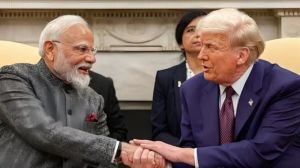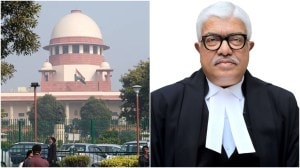CTBT — Cong set to block Govt bid for consensus
NEW DELHI, JULY 26: The government's attempts to forge a national consensus on the Comprehensive Test Ban Treaty (CTBT) during this Parlia...

NEW DELHI, JULY 26: The government’s attempts to forge a national consensus on the Comprehensive Test Ban Treaty (CTBT) during this Parliament session may come a-cropper, with the Congress likely to ask New Delhi to wait for the new US administration to be sworn in next January before considering a signature.
A Congress veto would ensure that New Delhi cannot sign the CTBT before Prime Minister Vajpayee makes his trip to the US in September.
The only way the BJP-led government can still go ahead with a signature, is if it selectively interprets its own statement of calling for a “broadest possible national consensus”. There is speculation that New Delhi, knowing well that a CTBT signature would mean the difference between a good and a great reception for Vajpayee by the US in September, might ignore the Congress veto and instead ask for support by the 13 parties, who are part of the Government.
Principal Secretary Brajesh Mishra, who has recently been in the US, met his counterpart National Security Advisor Sandy Berger in Washington on Monday. Mishra has gone to finalise the agenda for the PM’s trip and is likely to meet other senior officials in the State Department as well, including Strobe Talbott.
Meanwhile, the Congress seems determined not to support the government if it pleads for help on the CTBT in Parliament. Senior party leaders say they are not against the Treaty per se, but intend to ask why New Delhi wants to sign on the eve of Vajpayee’s trip, when it didn’t do so after the Pokharan tests in 1998.
“Why is there such a hurry on the part of the government to sign the CTBT, when the US Senate itself has rejected it,” K. Natwar Singh, chairman of the Foreign Affairs Cell of the Congress, told The Indian Express. He said: “The Clinton administration has already become a lame-duck administration. The government should wait for the new US administration to be sworn in next January before it arrives at a decision.”
The Congress’ opposition to the CTBT is matched by the government’s keenness to sign. External Affairs Minister Jaswant Singh recently told journalists that he would not like to link a signature to the removal of sanctions by the US.
Government sources say the decision to delink a Treaty signature from US sanctions was taken more than six months ago.The hope remains that the Congress may be brought around during the debate in Parliament. The debate on foreign policy promises to be a lively one. The Congress says it intends to question the government on issues like Sri Lanka, Fiji, Sierra Leone and the comments by Home and External Affairs Minister on Israel and the Arab world.
The Congress itself has been speaking in different voices on major aspects of the country’s nuclear policy. More than the confusion on the party’s stand on the minimum nuclear deterrent, it has been unable to explain its positions on these issues.





- 01
- 02
- 03
- 04
- 05


























